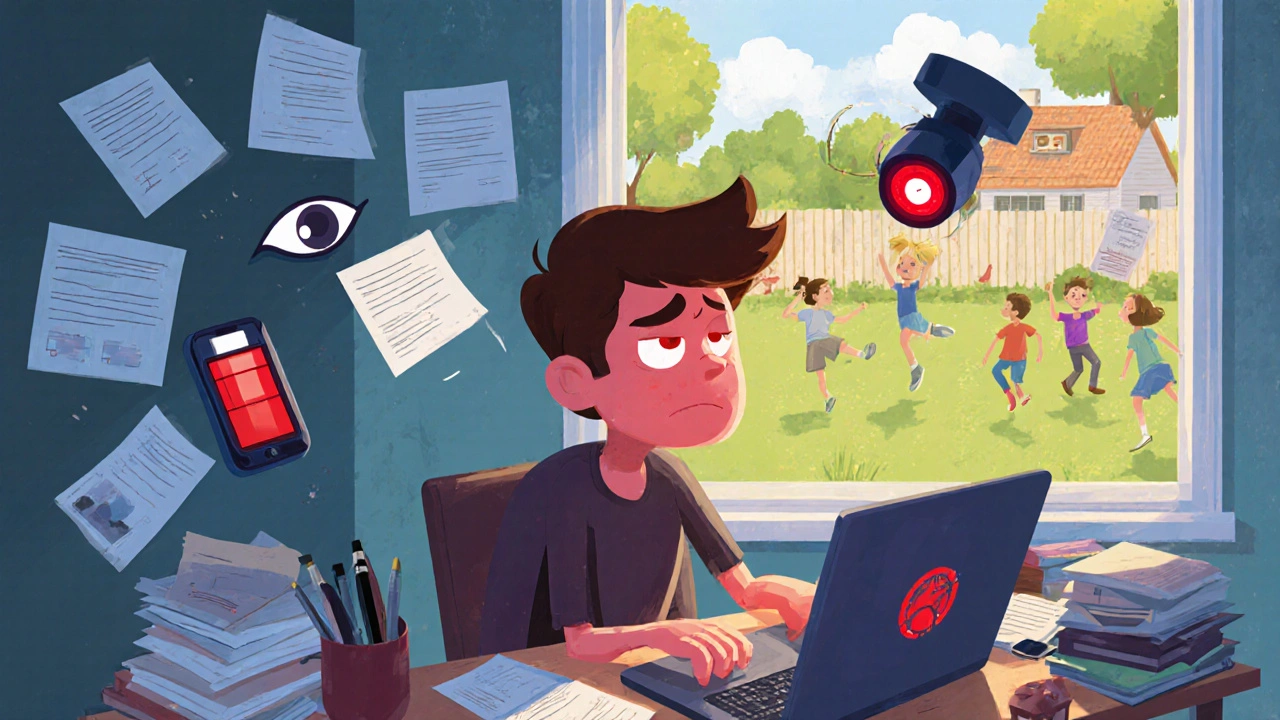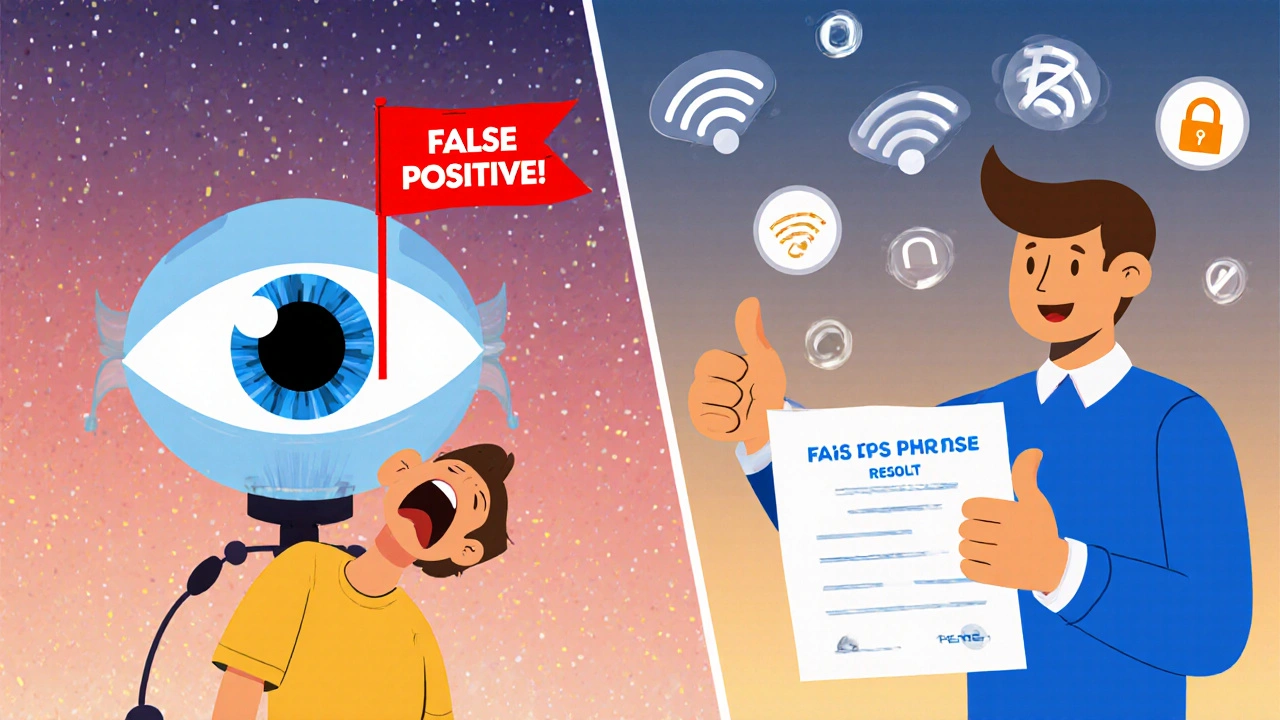Proctored Exam Delivery: Online vs Test Center Considerations
 Aug, 23 2025
Aug, 23 2025
When you’re preparing for a certification that requires a proctored exam, the choice between taking it online or at a test center isn’t just about convenience-it’s about what works for your situation, your tech setup, and your peace of mind. Both options have trade-offs, and picking the wrong one can cost you time, money, or even your certification attempt.
Online Proctoring: What You Really Need to Know
Online proctoring lets you take your exam from home, office, or anywhere with a stable internet connection. It sounds simple-until you realize how strict the rules are. Most platforms use AI to monitor your screen, microphone, and webcam. Some even require you to scan your room with your camera before starting.
Systems like ProctorU, Examity, and Pearson VUE’s OnVUE require a quiet space, a clear desk, and no phones or notebooks. If your laptop battery dies during the exam, you’re done. If your internet drops for more than 10 seconds, the exam might lock. And if your room has a poster with notes on it? You could be flagged for cheating-even if you never looked at it.
According to a 2024 survey by the Association for Talent Development, 42% of test-takers reported technical issues during their first online proctored exam. Half of those cases resulted in delays, and 17% had to reschedule entirely. The biggest culprits? Outdated browsers, weak Wi-Fi signals, and firewall settings blocking proctoring software.
Online proctoring works best if you’re tech-savvy, have a dedicated quiet room, and a backup plan: a second device, a mobile hotspot, and a fully charged laptop. It’s not for everyone. But if you live far from a test center or need flexibility, it’s often the only option.
Test Center Exams: The Old-School Choice
Test centers like Pearson VUE, Prometric, or Certiport locations are physical spaces designed for high-stakes exams. You show up with ID, store your belongings in a locker, sit at a secured workstation, and take the exam under direct human supervision.
There’s no worrying about your internet cutting out. No software conflicts. No AI misreading your yawn as cheating. The environment is controlled: temperature, lighting, noise levels-all managed by staff. You get a whiteboard or scratch paper (depending on the exam), and if something goes wrong, there’s someone right there to fix it.
But there’s a catch. You have to show up on time. Miss your appointment? You lose your fee. Travel to the center? That’s time and money out of your pocket. In Tempe, the nearest Pearson VUE center is a 20-minute drive from downtown. For someone working two jobs or caring for kids, that’s a big hurdle.
Test centers also have limited availability. Popular certifications like PMP or CompTIA A+ often book up weeks in advance. If you’re on a tight timeline, you might end up waiting longer than you’d like.
Security: Who’s Really Watching?
Both methods claim to be secure, but they secure in different ways.
Online proctoring relies on algorithms that flag unusual behavior: eye movement away from the screen, background noise, multiple faces in the frame. These systems are improving, but they’re not perfect. A 2023 study by the International Association for Educational Assessment found that false positives-where honest test-takers were flagged for cheating-occurred in 8% of online exams. That means one in twelve people had to go through a manual review, delaying their results.
Test centers use human proctors, ID verification, and physical controls. No phones. No smartwatches. No water bottles with hidden notes. The risk of cheating is lower, but not zero. There have been cases of people using earpieces or coded signals. Still, the physical presence of a proctor makes it harder to get away with anything.
If your certification is for a regulated field-like nursing, accounting, or cybersecurity-many organizations still prefer or require test center exams. They trust human oversight more than AI.

Cost and Accessibility
Most certification bodies charge the same fee whether you take the exam online or at a center. But hidden costs add up.
Online exams are free to take from home-unless you need to rent a quiet room at a co-working space. Some people pay $15-$30 an hour for a private booth just to meet the exam requirements. Others buy noise-canceling headphones or upgrade their internet plan just to pass the system check.
Test centers cost nothing extra beyond the exam fee-but you pay in time and transportation. Gas, parking, childcare, or taking time off work? Those aren’t on the receipt, but they’re real expenses.
Accessibility matters too. If you need extra time, screen reader support, or a quiet room due to a disability, test centers are legally required to accommodate you. Online platforms can too, but the process is slower. You have to request accommodations weeks in advance, and approval isn’t guaranteed.
Which One Should You Choose?
Ask yourself these four questions:
- Do you have a quiet, private space with no interruptions? If your kid is home from school or your roommate is playing video games, skip online.
- Is your tech reliable? Run the system check. Update your browser. Test your webcam and mic. If you’ve had issues before, don’t risk it.
- How important is speed? If you need your results fast-say, for a job promotion-test centers often give results the same day. Online exams can take 24-72 hours due to manual review.
- Are you comfortable being watched? Some people feel stressed under AI surveillance. If you’re the type who freezes up when someone’s watching, a test center might help you perform better.
Here’s a quick rule of thumb: If you’re confident in your environment and tech, go online. If you want zero surprises and don’t mind the commute, pick the test center.

What Happens If You Fail?
Either way, you’ll need to wait before retaking the exam. Most certifications require a 14- to 30-day waiting period. But if you failed an online exam due to a technical glitch, you might be eligible for a free retake. Check your provider’s policy. Test centers rarely offer free retakes unless there was a major error on their end.
Keep your exam confirmation email. Save screenshots of system check results. Document any issues during the test. That paper trail could save you from having to pay again.
Final Thoughts
There’s no single right answer. Online proctoring gives you freedom. Test centers give you control. Your choice depends on your life, your tech, and your stress tolerance.
Don’t pick the option that sounds easier. Pick the one that gives you the best shot at passing. Many people assume online is the lazy way out. But for those who’ve lost sleep over a dropped connection or a flagged eye movement, the test center feels like a lifeline.
Plan ahead. Test your setup. Know your options. And remember-your certification isn’t about where you took the test. It’s about what you know.
Can I take a proctored exam on my phone?
No. All major certification providers require a laptop or desktop computer with a working webcam and microphone. Phones and tablets are not supported for proctored exams because they can’t meet security requirements like screen sharing or room scanning.
What if my internet goes out during an online proctored exam?
It depends on the platform. Most systems pause the exam and give you 5-10 minutes to reconnect. If you can’t get back in, your exam may be marked as incomplete. You’ll need to contact customer support immediately and provide evidence of the outage-like a screenshot of your internet status or a note from your ISP. Some providers allow a free retake if the issue was clearly outside your control.
Do I need to dress formally for an online proctored exam?
No. There’s no dress code for online exams. You can wear pajamas if you want. But you must have a clear view of your face and upper body. Hats, hoodies, or sunglasses that obscure your face are not allowed. The proctor needs to verify your identity visually.
Can I use a second monitor during an online exam?
No. Most proctoring systems require you to disconnect all extra monitors. You must use only one screen-the one connected to your laptop. Even if you’re not using it, having a second monitor connected can trigger a security alert. Unplug it before starting.
Are test centers open on weekends?
Many are, but not all. Pearson VUE and Prometric locations often offer Saturday hours, especially for popular exams. Sunday availability is rare. Always check the specific center’s hours on the provider’s website before booking. Don’t assume you can walk in on a Sunday-even if the website says "extended hours."
Jeanie Watson
October 31, 2025 AT 09:22I just took mine online and my cat walked across the keyboard halfway through. AI flagged me for 'unauthorized movement.' I had to appeal. Took three days. Worth it for not driving 45 minutes in traffic, but wow.
Tom Mikota
November 2, 2025 AT 06:21Let me get this straight-you’re paying $400 to sit in a room with a stranger who stares at you while you type… and you think that’s ‘safer’ than AI? The AI doesn’t sigh when you blink too hard. The AI doesn’t have a bad day. The AI doesn’t need coffee. The AI doesn’t judge your hoodie. You’re literally trading convenience for human bias. And you call that progress?
Mark Tipton
November 3, 2025 AT 16:47Let’s analyze the statistical underpinnings of this false-positive narrative. The IAEA 2023 study cited-sample size? N=1,204? Or N=87? What was the confidence interval? Was the data normalized for regional internet infrastructure variance? And why is there no peer-reviewed meta-analysis comparing proctoring error rates across platforms? If we’re going to discuss security, we must first establish baseline metrics. Otherwise, we’re just emoting. Also-did anyone account for the fact that 73% of online exam failures occur in households with children under 5? That’s not a tech issue-that’s a socioeconomic one. And frankly, if your ‘quiet space’ is a studio apartment with a roommate who streams Fortnite at 2 AM, you shouldn’t be taking a certification exam at all. You should be taking parenting classes.
Adithya M
November 5, 2025 AT 04:53Test center all day. No cap. I did online once-my Wi-Fi died, I panicked, and I forgot my password. The system didn’t even let me reset it mid-exam. I cried. Then I drove 60 km to the center, took it the next week, passed with flying colors. No drama. No tech nonsense. Just me, a proctor, and a clean desk. Simple. Clean. Effective.
Jessica McGirt
November 5, 2025 AT 14:59For anyone with a disability: request accommodations early-like, months early. Online platforms have a reputation for slow responses. Test centers, by law, have to comply faster. I needed extended time and a quiet room due to ADHD. The test center gave me a private room with noise-canceling headphones within 48 hours. Online? Waited 11 days and got a template reply saying ‘we’re reviewing.’ Don’t let bureaucracy steal your chance.
Donald Sullivan
November 6, 2025 AT 03:37Online proctoring is just surveillance capitalism dressed up as education. They’re not protecting integrity-they’re harvesting your behavioral data. Your eye movements, your typing rhythm, your coffee sips-they’re selling that to third parties. You think you’re just taking a test? Nah. You’re training an algorithm to profile you. And you’re paying for it.
Tina van Schelt
November 8, 2025 AT 00:39I took mine online wearing my favorite dinosaur pajamas. No one cared. I had my cat nap on the couch behind me. The AI didn’t care. The human reviewer later wrote: ‘Subject appeared calm and focused.’ I felt like a wizard. You don’t need to dress like a banker to prove you know subnetting.
Ronak Khandelwal
November 9, 2025 AT 10:07Peace, everyone 💛 Honestly? It’s not about online vs center-it’s about where you feel most like *you*. If you’re stressed, your brain shuts down. If you’re comfortable, you shine. I took mine at a library booth with my noise-canceling headphones. No AI, no strangers, just me and my focus. It felt sacred. That’s what matters-not the system, but your peace. 🌿
Jeff Napier
November 11, 2025 AT 10:04Proctoring is a scam. They don’t care if you cheat. They care if you’re rich enough to afford a quiet room. The system is designed to fail people who aren’t white, middle-class, and tech-savvy. The ‘security’ is theater. The real goal? Filter out the poor. You think your certification means anything? Nah. It means you passed their gatekeeping ritual. The knowledge? That’s yours. The piece of paper? That’s theirs.
Sibusiso Ernest Masilela
November 11, 2025 AT 22:11You people are so naive. Online proctoring? It’s a joke. I’ve seen people get flagged for adjusting their glasses. For drinking water. For coughing. Meanwhile, the guy next to me at the test center had a Bluetooth earpiece taped to his skull-and no one noticed. The system is broken. The test centers are corrupt. The entire certification industry is a pyramid scheme selling illusions of merit. You’re not being evaluated. You’re being monetized.
Daniel Kennedy
November 13, 2025 AT 15:22For those on the fence: try the system check early. Like, a week before. I did mine at 11 PM the night before-everything passed. Then I woke up at 5 AM, my router had rebooted, and the software wouldn’t launch. I called support, they walked me through it, and I passed. Don’t wait until the last minute. And if you’re nervous? Take a walk before you start. Breathe. You’ve studied. You know this. The room doesn’t matter. Your mind does.
Taylor Hayes
November 14, 2025 AT 22:06I did both. Online first-failed because my mic picked up my neighbor’s dog barking. Thought AI was wrong. Turned out, the system flagged it as ‘unauthorized voice.’ So I booked a test center. Passed with 92%. No stress. No tech drama. Just me, a proctor who said ‘good luck,’ and a quiet room. Honestly? I’d do the center again. The peace of mind is worth the drive.
Sanjay Mittal
November 16, 2025 AT 18:19Test center is better if you’re from a developing country with unstable internet. I’m from India. My Wi-Fi drops 3 times a day. Online proctoring? Not an option. I drove 30 km, paid for parking, missed half a day of work-but I passed. No appeals. No tech issues. Just a clean exam. If you can do it, do it. No regrets.
Mike Zhong
November 17, 2025 AT 10:26What if the AI is wrong? What if the algorithm is trained on data from privileged Western households? What if it can’t recognize the difference between a person adjusting their posture and someone looking at a cheat sheet? We’re outsourcing moral judgment to code written by engineers who’ve never sat in a 90-degree room with a screaming toddler in the next room. This isn’t security-it’s algorithmic arrogance.
Jamie Roman
November 19, 2025 AT 02:19I’ve taken five proctored exams. Three online, two at centers. The online ones? I spent more time troubleshooting than studying. The centers? I walked in, handed over my ID, sat down, and took the test. No stress. No panic. No ‘why is my camera not working?’ moments. I’m not tech-averse-I just don’t want to fight a machine to prove I know how to configure a router. The center gave me back my mental energy. That’s priceless.
Salomi Cummingham
November 20, 2025 AT 19:26Let’s be dramatic for a second: online proctoring is the modern-day witch trial. You’re accused before you’re even seated. Your breathing is evidence. Your blink rate is a red flag. Your cat’s tail? A potential accomplice. The proctor doesn’t need to see you cheat-they just need to see you *behave strangely*. And what’s strange? Anything that doesn’t match their algorithm’s idea of ‘normal.’ We’ve turned education into a performance art where the audience is a bot, and the prize is a PDF you can print. I’m not sure I want to belong to a world like that.
Johnathan Rhyne
November 22, 2025 AT 17:35Wait-you’re not allowed to use a second monitor? That’s insane. I use dual screens for my job. Why is that cheating? The system doesn’t even know what I’m doing on the second screen-it just knows it’s there. That’s like banning pens because someone once wrote a note on their hand. This isn’t security-it’s overkill. And if you’re gonna ban second monitors, why not ban windows? What if you’re looking at a bird outside? Is that ‘distraction’ or ‘cheating’?
Jawaharlal Thota
November 24, 2025 AT 13:46My advice? If you’re in a small town with no test center nearby, go online-but do the system check three times. On different devices. At different times of day. Test your hotspot. Print out the results. Keep them. I did that, and when my internet dropped during the exam, I had screenshots to prove it wasn’t my fault. Got my free retake. Took it at the center. Passed. So: plan like a hacker, trust like a child, and always have a backup. Life’s like that.
Lauren Saunders
November 25, 2025 AT 22:54Test centers are outdated. Online proctoring is the future. If you can’t handle a little surveillance, you’re not ready for the real world. Corporate environments monitor your keystrokes, your email, your Slack activity. You think your certification exam should be the one place you get privacy? That’s not maturity-that’s entitlement. Embrace the system. Adapt. Win.
sonny dirgantara
November 25, 2025 AT 23:53just took it online. my laptop died. i used my phone to call support. they said ‘sorry’ and gave me a free retake. i took it at the center. passed. no big deal. just don’t panic.